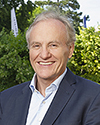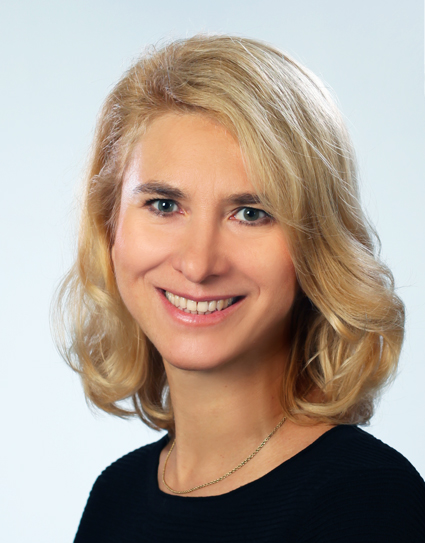Question A:
Europeans would benefit more from an extra €1 billion of public R&D spent through existing (public) channels than from an extra €1 billion of private R&D spent through existing (private) channels, all else equal.
Responses
Responses weighted by each expert's confidence
Question B:
Europeans would benefit more from an extra €1 billion of public medical research spent through existing (public) channels than from an extra €1 billion of private medical research spent through existing (private) channels, all else equal.
Responses
Responses weighted by each expert's confidence
Question A Participant Responses
| Participant | University | Vote | Confidence | Bio/Vote History |
|---|---|---|---|---|
 Franklin Allen |
Imperial College London | Bio/Vote History | ||
|
It depends significantly on the country and what exactly the money would be spent on in both public and private cases.
|
||||
   Pol Antras |
Harvard | Bio/Vote History | ||
|
|
||||
   Timothy J. Besley |
LSE | Did Not Answer | Bio/Vote History | |
|
|
||||
   Olivier Blanchard |
Peterson Institute | Bio/Vote History | ||
|
|
||||
   Nicholas Bloom |
Stanford | Bio/Vote History | ||
|
|
||||
   Richard William Blundell |
University College London | Bio/Vote History | ||
|
|
||||
   Agnès Bénassy-Quéré |
Paris School of Economics | Bio/Vote History | ||
|
|
||||
   Elena Carletti |
Bocconi | Bio/Vote History | ||
|
|
||||
   Jean-Pierre Danthine |
Paris School of Economics | Bio/Vote History | ||
|
|
||||
   Paul De Grauwe |
LSE | Did Not Answer | Bio/Vote History | |
|
|
||||
   Jan Eeckhout |
UPF Barcelona | Bio/Vote History | ||
|
|
||||
   Ernst Fehr |
Universität Zurich | Bio/Vote History | ||
|
|
||||
   Xavier Freixas |
Barcelona GSE | Did Not Answer | Bio/Vote History | |
|
|
||||
   Nicola Fuchs-Schündeln |
Goethe-Universität Frankfurt | Bio/Vote History | ||
|
|
||||
   Jordi Galí |
Barcelona GSE | Bio/Vote History | ||
|
|
||||
   Francesco Giavazzi |
Bocconi | Bio/Vote History | ||
|
|
||||
   Rachel Griffith |
University of Manchester | Bio/Vote History | ||
|
|
||||
   Veronica Guerrieri |
Chicago Booth | Did Not Answer | Bio/Vote History | |
|
|
||||
   Luigi Guiso |
Einaudi Institute for Economics and Finance | Bio/Vote History | ||
|
efficiency of public spending in R&D is doubtful
|
||||
   Patrick Honohan |
Trinity College Dublin | Bio/Vote History | ||
|
|
||||
   Beata Javorcik |
University of Oxford | Bio/Vote History | ||
|
|
||||
   Henrik Kleven |
Princeton | Did Not Answer | Bio/Vote History | |
|
|
||||
   Jan Pieter Krahnen |
Goethe University Frankfurt | Bio/Vote History | ||
|
I believe in the direct plus indirect benefit of basic research, which is more likely to be public rather than private R&D.
|
||||
   Botond Kőszegi |
Central European University | Bio/Vote History | ||
|
|
||||
   Eliana La Ferrara |
Harvard Kennedy | Did Not Answer | Bio/Vote History | |
|
|
||||
   Christian Leuz |
Chicago Booth | Bio/Vote History | ||
|
Key Q: Is public RD complement or substitute? Evidence weakly favors former, esp @ higher aggregation & more general invstm. Not conclusive.
-see background information here -see background information here |
||||
   Thierry Mayer |
Sciences-Po | Did Not Answer | Bio/Vote History | |
|
|
||||
   Costas Meghir |
Yale | Did Not Answer | Bio/Vote History | |
|
|
||||
   Peter Neary |
Oxford | Bio/Vote History | ||
|
In principle publicly funding R&D can respond better to social priorities and internalize spillovers. Doing so in practice is a challenge
-see background information here |
||||
   Kevin O'Rourke |
Oxford | Bio/Vote History | ||
|
|
||||
   Marco Pagano |
Università di Napoli Federico II | Bio/Vote History | ||
|
|
||||
   Lubos Pastor |
Chicago Booth | Bio/Vote History | ||
|
|
||||
   Torsten Persson |
Stockholm University | Did Not Answer | Bio/Vote History | |
|
|
||||
   Christopher Pissarides |
London School of Economics and Political Science | Bio/Vote History | ||
|
|
||||
   Richard Portes |
London Business School | Bio/Vote History | ||
|
|
||||
   Canice Prendergast |
Chicago Booth | Bio/Vote History | ||
|
|
||||
   Lucrezia Reichlin |
London Business School | Bio/Vote History | ||
|
|
||||
   Rafael Repullo |
CEMFI | Bio/Vote History | ||
|
|
||||
   Hélène Rey |
London Business School | Did Not Answer | Bio/Vote History | |
|
|
||||
   Antoinette Schoar |
MIT | Bio/Vote History | ||
|
|
||||
   Daniel Sturm |
London School of Economics | Bio/Vote History | ||
|
|
||||
   John Van Reenen |
LSE | Bio/Vote History | ||
|
|
||||
   John Vickers |
Oxford | Bio/Vote History | ||
|
Public R&D might well be better directed but if near optimal to start with, private R&D externalities could do more good at the margin
|
||||
   Hans-Joachim Voth |
University of Zurich | Bio/Vote History | ||
|
|
||||
   Beatrice Weder di Mauro |
The Graduate Institute, Geneva | Did Not Answer | Bio/Vote History | |
|
|
||||
   Karl Whelan |
University College Dublin | Bio/Vote History | ||
|
Not an easy question. Private R&D more likely to spent in zero-sum competitions for market share and establishing dominant market positions.
|
||||
   Charles Wyplosz |
The Graduate Institute Geneva | Bio/Vote History | ||
|
It depends on what public "investment" consists of, even with negative interest rates
|
||||
   Fabrizio Zilibotti |
Yale University | Bio/Vote History | ||
|
|
||||
Question B Participant Responses
| Participant | University | Vote | Confidence | Bio/Vote History |
|---|---|---|---|---|
   Franklin Allen |
Imperial College London | Bio/Vote History | ||
|
Private research tends to spent on rich world lifestyle medical problems while public research can focus on deadly diseases like TB.
|
||||
   Pol Antras |
Harvard | Bio/Vote History | ||
|
|
||||
   Timothy J. Besley |
LSE | Did Not Answer | Bio/Vote History | |
|
|
||||
   Olivier Blanchard |
Peterson Institute | Bio/Vote History | ||
|
|
||||
   Nicholas Bloom |
Stanford | Bio/Vote History | ||
|
|
||||
   Richard William Blundell |
University College London | Bio/Vote History | ||
|
|
||||
   Agnès Bénassy-Quéré |
Paris School of Economics | Bio/Vote History | ||
|
|
||||
   Elena Carletti |
Bocconi | Bio/Vote History | ||
|
|
||||
   Jean-Pierre Danthine |
Paris School of Economics | Bio/Vote History | ||
|
Stronger public regulation (e.g. on pricing and accounting transparency) with private investment may be a better combination
|
||||
   Paul De Grauwe |
LSE | Did Not Answer | Bio/Vote History | |
|
|
||||
   Jan Eeckhout |
UPF Barcelona | Bio/Vote History | ||
|
|
||||
   Ernst Fehr |
Universität Zurich | Bio/Vote History | ||
|
|
||||
   Xavier Freixas |
Barcelona GSE | Did Not Answer | Bio/Vote History | |
|
|
||||
   Nicola Fuchs-Schündeln |
Goethe-Universität Frankfurt | Bio/Vote History | ||
|
|
||||
   Jordi Galí |
Barcelona GSE | Bio/Vote History | ||
|
|
||||
   Francesco Giavazzi |
Bocconi | Bio/Vote History | ||
|
|
||||
   Rachel Griffith |
University of Manchester | Bio/Vote History | ||
|
|
||||
   Veronica Guerrieri |
Chicago Booth | Did Not Answer | Bio/Vote History | |
|
|
||||
   Luigi Guiso |
Einaudi Institute for Economics and Finance | Bio/Vote History | ||
|
fundamental medical research in probably better curried out at public centers
|
||||
   Patrick Honohan |
Trinity College Dublin | Bio/Vote History | ||
|
|
||||
   Beata Javorcik |
University of Oxford | Bio/Vote History | ||
|
|
||||
   Henrik Kleven |
Princeton | Did Not Answer | Bio/Vote History | |
|
|
||||
   Jan Pieter Krahnen |
Goethe University Frankfurt | Bio/Vote History | ||
|
Public R&D may have positive second round effects in the form of private R&D, whereas the opposite is less likely to happen.
|
||||
   Botond Kőszegi |
Central European University | Bio/Vote History | ||
|
|
||||
   Eliana La Ferrara |
Harvard Kennedy | Did Not Answer | Bio/Vote History | |
|
|
||||
   Christian Leuz |
Chicago Booth | Bio/Vote History | ||
|
Again, evidence tends to favor complementarity, but difficult to measure. Complementarity appears stronger for basic research.
-see background information here -see background information here |
||||
   Thierry Mayer |
Sciences-Po | Did Not Answer | Bio/Vote History | |
|
|
||||
   Costas Meghir |
Yale | Did Not Answer | Bio/Vote History | |
|
|
||||
   Peter Neary |
Oxford | Bio/Vote History | ||
|
The same superiority in principle, and problems of implementation in practive, arise as for (A)
|
||||
   Kevin O'Rourke |
Oxford | Bio/Vote History | ||
|
|
||||
   Marco Pagano |
Università di Napoli Federico II | Bio/Vote History | ||
|
|
||||
   Lubos Pastor |
Chicago Booth | Bio/Vote History | ||
|
|
||||
   Torsten Persson |
Stockholm University | Did Not Answer | Bio/Vote History | |
|
|
||||
   Christopher Pissarides |
London School of Economics and Political Science | Bio/Vote History | ||
|
|
||||
   Richard Portes |
London Business School | Bio/Vote History | ||
|
|
||||
   Canice Prendergast |
Chicago Booth | Bio/Vote History | ||
|
|
||||
   Lucrezia Reichlin |
London Business School | Bio/Vote History | ||
|
|
||||
   Rafael Repullo |
CEMFI | Bio/Vote History | ||
|
|
||||
   Hélène Rey |
London Business School | Did Not Answer | Bio/Vote History | |
|
|
||||
   Antoinette Schoar |
MIT | Bio/Vote History | ||
|
|
||||
   Daniel Sturm |
London School of Economics | Bio/Vote History | ||
|
|
||||
   John Van Reenen |
LSE | Bio/Vote History | ||
|
|
||||
   John Vickers |
Oxford | Bio/Vote History | ||
|
|
||||
   Hans-Joachim Voth |
University of Zurich | Bio/Vote History | ||
|
|
||||
   Beatrice Weder di Mauro |
The Graduate Institute, Geneva | Did Not Answer | Bio/Vote History | |
|
|
||||
   Karl Whelan |
University College Dublin | Bio/Vote History | ||
|
Similarly, much of the benefit of private medical R&D goes to profits made by drug producers.
|
||||
   Charles Wyplosz |
The Graduate Institute Geneva | Bio/Vote History | ||
|
I have no idea of the ROI of each channel
|
||||
   Fabrizio Zilibotti |
Yale University | Bio/Vote History | ||
|
|
||||

